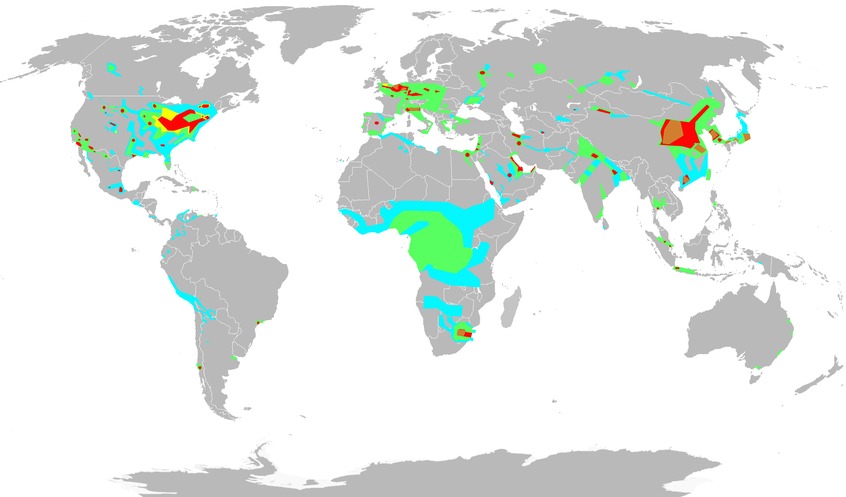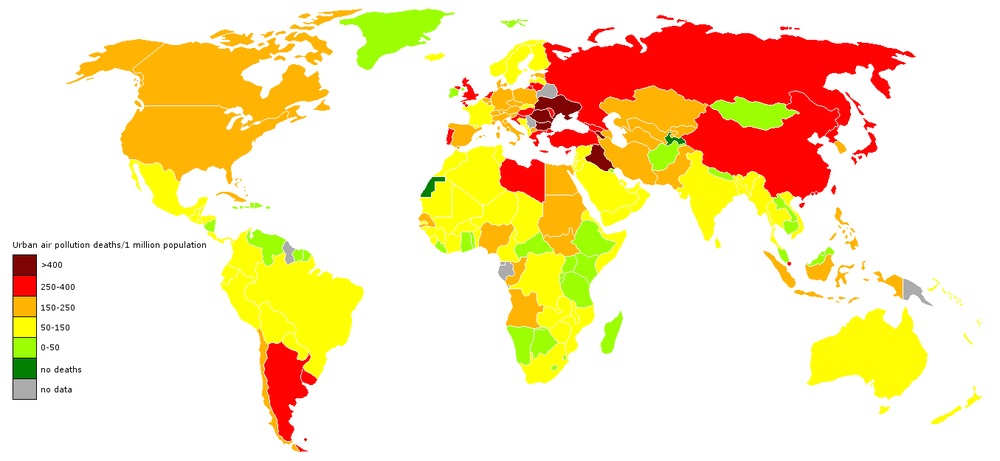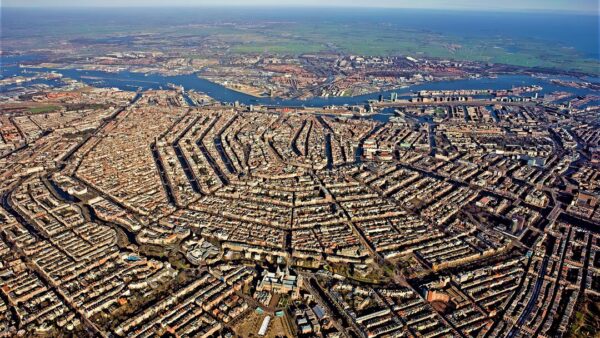A commission set up by British medical journal The Lancet has published a report on the global impact of pollution on the health of populations and the output of their economies. This finds that pollution was responsible for 9 million premature deaths in 2015, and 16% of all deaths worldwide.
Overall, pollution was responsible for three times as many deaths as HIV, tuberculosis and malaria combined, and 15 times more deaths than war and other forms of violence. In economic terms, it reduced GDP in low and middle-income countries by up to 2% a year and accounted for 1.7% of annual health spending in high-income countries. Welfare losses due to pollution are estimated to amount to $4.6 trillion per year, or 6.2% of global economic output.
A disease of the poor
The report notes that the harmful effects of pollution increase in proportion to the vulnerability of societies and groups within society.
It says: “Nearly 92% of pollution-related deaths occur in low-income and middle-income countries and, in countries at every income level, disease caused by pollution is most prevalent among minorities and the marginalised.
“Children are at high risk of pollution-related disease and even extremely low-dose exposures to pollutants during windows of vulnerability in utero and in early infancy can result in disease, disability, and death in childhood and across their lifespan.”
Pollution control provides an extraordinary opportunity to improve the health of the planet. It is a winnable battle
The report underlines the gains that societies stand to make by switching to wind and solar sources to generate electricity and fuel transport systems. It says: “Fossil fuel combustion in high and middle-income countries, and the burning of biomass in low-income countries, accounts for 85% of airborne particulate pollution and almost all pollution by oxides of sulphur and nitrogen.”
A growing problem
Despite the growth in renewable energy and a decline in biomass burning in many parts of the world pollution is getting worse. “Household air and water pollution, the forms of pollution associated with profound poverty and traditional lifestyles, are slowly declining. However, ambient air pollution, chemical pollution and soil pollution are all on the rise, with the most marked increases in industrialising low and middle-income countries.”

Nitrogen dioxide concentrations measured by satellite (KVDP/Creative Commons)
It adds that chemical pollution in the agricultural sector is also an increasing problem. It says that less than half of the 5,000 chemicals produced in greatest volume, and to which almost everyone on the planet has been exposed, have undergone any testing for safety or toxicity. These include neurotoxicants, endocrine disruptors, chemical herbicides, novel insecticides, pharmaceutical wastes, and nanomaterials.Â
Effective remedies
The report points out that the effects of pollution can be curbed by regulation and legislation. Most higher income countries have succeeded in improving air and water quality, so that the blood lead concentrations of children have decreased by more than 90% and “their rivers no longer catch fire”.
It also notes that high-income countries have achieved this while increasing GDP by nearly 250%. Therefore, the argument that poor countries must pass through a dirty phase before they can develop their economies has “repeatedly been proven to be untrue”.
It says that the use of renewable energy and efficient public transportation systems “can enable low-income and middle-income countries to avoid many of the harmful consequences of pollution, leapfrog the worst of the human and ecological disasters that have plagued industrial development in the past, and improve the health and wellbeing of their people”.
The report concludes: “Pollution control provides an extraordinary opportunity to improve the health of the planet. It is a winnable battle.”

Deaths per capita from air pollution (KVDP/Creative Commons)
The Lancet commission makes the following recommendations to reduce the effects of pollution:
- Integrate pollution control into development planning, complete with targets, timetables and legally mandated regulation. The polluter-pays principle should be enforced and an end made to subsidies and tax breaks for polluting industries.
- Increase funding and international technical support for pollution control in developing countries. The amount of funding from international agencies, binational donors, and private foundations for poorer countries is presently “meagre”.
- Establish systems to monitor pollution and its effects on health. These might include satellite imaging and data mining, together with open access to real time data on areas such as air quality.
- Build multi-sectoral partnerships for pollution control. Taskforces made up of health, environment, finance, energy, agriculture, development and transport are essential. In addition, the private sector is in a unique position to provide leadership in the design and development of clean, non-polluting, sustainable technologies for pollution control.
- Research pollution and pollution control. Research is needed to understand and control pollution and to drive change in pollution policy.
A free copy of the report can be downloaded here (registration needed).
Top image: Industrialising middle-income countries such as Egypt are hardest hit by pollution
Further Reading:






